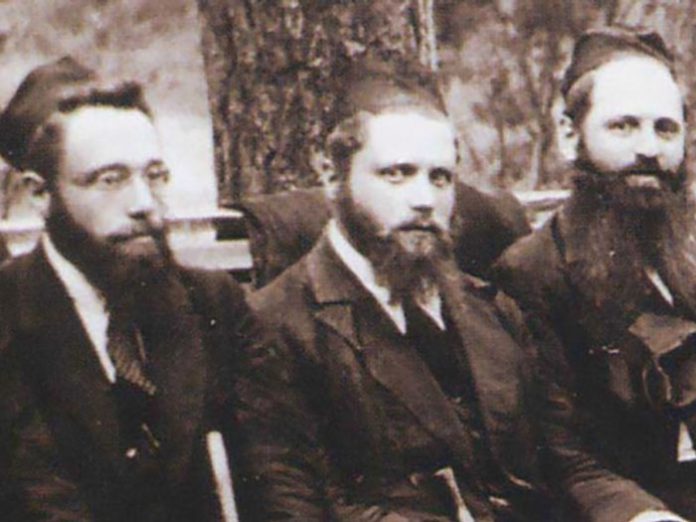On the walls of Rebbetzin Shoshana Gifter’s home in Toms River, NJ, where she lives with her son Rav Shmuel Zalman Gifter, are black and white photographs of her illustrious Telshe ancestry. There are photos of her paternal great-grandfather, Rav Eliezer Gordon, founder of the Telshe Yeshivah in Lithuania; her paternal grandfather, Rav Yosef Yehuda Bloch; her father, Rav Shmuel Zalman Bloch; and her maternal grandfather, Rav Binyamin Banish. In the center is a photo of her husband, Rav Mordechai Gifter, zt”l, the Telshe Rosh Yeshivah, who passed away in 2001.
As I enter the home to visit Rebbetzin Gifter, she stands up from her place at the dining room table until she is sure that I have a seat. I am struck by her humility, her articulate, soft-spoken demeanor, and her warmth. Before I leave, Rebbetzin Gifter gives me a warm brachah and asks me for one. I treasure her brachah and the opportunity to connect to someone from the previous generation.
Life in Telshe, Lithuania, before the War
“There are certain things that you wouldn’t believe, because life was so different,” Rebbetzin Gifter shares. “We lived a Torah life. We didn’t have the gashmiyus that we have here in America. We had what we needed and we were very happy.”
I ask Rebbetzin Gifter to share some examples.
“My granddaughter recently wrote a report for school and asked me several questions about my childhood. One was about the snack that I took to school each day. In the summer we had fruit; I took an apple to school. In the winter there was no fruit, so I took a piece of bread with a little bit of jelly—and that was a delicacy. When I shared this with my granddaughter, she smiled. I asked her why she was smiling. ‘If I brought an apple for snack, the girls in my class would laugh,’ she told me.
“In our home [in the 1920s, before World War II] everything was on a different madreigah. Gashmiyus didn’t play as much of a role; we didn’t have many clothes and toys, and we didn’t have as much food. Yet we were happy with whatever we had.





















